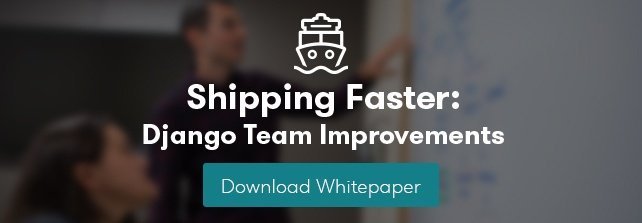
Here at Caktus, we use the popular Django web framework for a lot of our custom web application development. We don't use Django simply because it's popular, easy to learn, or happened to be the first thing we found. We've written web apps in PHP, Java, and Ruby on Rails--all before we discovered Django--but were never quite satisfied. Following are just a few of the reasons that we both enjoy working with Django and believe it gives you (the client) the best end-product.
Django is Business-Friendly
Django is open source, free, and published under a "do anything you like" license, so it can be used to create all kinds of products, including proprietary business web apps. In addition to a flexible license, Django has a truly thriving user community and is being constantly improved by web developers like ourselves across the globe.
Built-in Admin Interface
Web application development often starts with the "data model." A data model defines the ways in which all the different pieces of information--such as customer names and addresses or product descriptions--are organized and related to each other in the database. Finding the right data model takes time and it's important to get it right, because a lot of development decisions will be based on the way your information is organized and accessible. When you're building a web application from the ground up--something we do every day at Caktus--you want the flexibility to experiment with your data model and "see" what all the different options look like.
This is where Django's built-in admin interface comes in. From the beginning, Django has included an automatically generated interface that lets you see and edit what's in your database. It knows the structure of your data and puts together a set of search and listing pages and custom web forms for creating, modifying, and otherwise managing your data. It lets you evaluate your data model up front before making a big investment in other parts of your web app. For some sites, the admin interface even makes up a big part of the final product (e.g., for sites that primarily publish content, such as news organizations). And, we've found, the automatically generated admin interface is a powerful tool for showing potential clients what a web app can do.
I Trust Django With My Data
At Caktus we put a strong emphasis on "data integrity." What is data integrity? Kevin already wrote a great post about what it is and why you should care about data integrity. In a nutshell, the "integrity" of data refers to its "completeness" or validity as a whole. For example, you probably want to limit the products that people can order on your web site to those that you actually stock in the warehouse. Modern "relational database management systems" provide integrity "checks" for your data that verify its appropriateness--based on the conditions you supply--for a given table in the database. When you build a data model in Django, you specify the nature or "type" of each column in your database and can even specify "constraints" on the data that--if your database server supports it--will be enforced at the database level in addition to the application. While this is always a good thing, it's even more important if other programs or users will be connecting to your database in addition to your web app. While Django does this out of the box, another popular web framework requires some under the hood "hacking" to achieve the same peace of mind about your data. On a side note, in addition to preferring Django for web app development, Caktus also prefers PostgreSQL for data storage. Our friends over at Summersault have already written a good summary describing why PostgreSQL is often the best choice for web app development, so I won't repeat the reasons here. We trust the Django + PostgreSQL combination so much that we even wrote our own CRM and bookkeeping package to keep track of our clients, projects, and all the related financial transactions.
Django is Written in Python
Python is a great language with no shortage of facilities and a huge (and growing) user base. A lot of Google's infrastructure is written in Python, and it is the only language supported by the initial release of their App Engine service. According to python.org:
[Python] offers strong support for integration with other languages and tools, comes with extensive standard libraries, and can be learned in a few days. Many Python programmers report substantial productivity gains and feel the language encourages the development of higher quality, more maintainable code.
Based on Caktus' experience writing Django web apps over the past 1.5+ years, this couldn't be more true.
Separation of Application Components
Django uses a variation of the Model View Controller (MVC) architecture that ensures all the different pieces of your application end up in the right place and, for larger projects, let the people with different skills work on the things they do best, without getting in each other's way. Moreover, Django implements its own very simple "template language" for generating web pages. While some may view its simplicity as a curse, it is actually a blessing in disguise: by allowing only very simple constructs in the template, Django forces you to keep your business logic in the controller (what Django calls a "view") where it belongs. At Caktus, we're not just web developers. We're web engineers with a passion for web apps that not only work, feel, and look great, but also have the capacity to grow, improve, and continue to perform long into the future without breaking the bank. That said, we're truly thrilled about the Python/Django + PostgreSQL combination.


